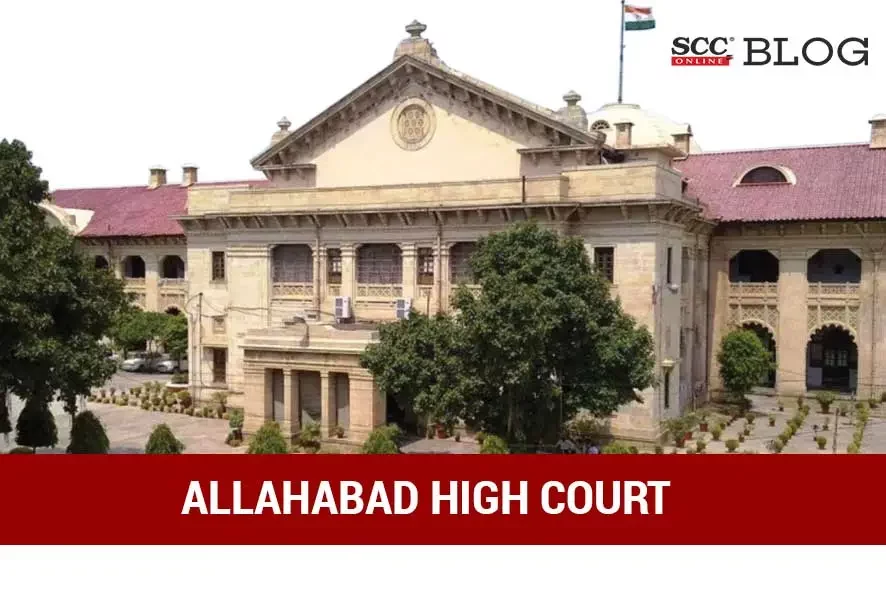Allahabad High Court: In an appeal under Section 14-A(2) Scheduled Castes and Scheduled Tribes (Prevention of Atrocities) Act, 1989 (‘SC/ST Act’) against the order passed by the Special Judge SC/ST Act, wherein the bail application of the accused persons has been rejected, Shamim Ahmed, J. said that the complainant was not competent to lodge the present FIR as he is neither the aggrieved person, nor his/her parents, brother, sister or any other person, who is related to him/her by blood, marriage or adoption is aggrieved person as provided under Section 4 of the Act, 2021. Further considering the fact that accused persons are in jail since 24-01-2023 and has undergone a substantial period of detention and further considering the larger mandate of the Article 21 of the Constitution of India and the law laid down in Dataram Singh v. State of U.P., (2018) 3 SCC 22 ,viewed that the Court below has failed to appreciate the material available on record, thus, it set aside the impugned order and granted bail to the accused persons.
The FIR was lodged for the offences under Sections 3 and 5 (1) of Uttar Pradesh Prohibition of Conversion of Religion Act, 2021 (‘Act 2021’) and Section 3 (1) of SC/ST Act. It was alleged that the accused persons were engaged in conversion of religion by various allurement amongst the communities of Scheduled Caste and Scheduled Tribe since three months. Consequently, the members of Scheduled Caste and Scheduled Tribe are annoyed with the activities of conversion of Religion by the accused persons.
The Court said that the primary allegation against the accused is of having contravened the provisions of Section 3 of the Act of 2021, which prohibits conversion or attempt of conversion either directly or otherwise from one religion to another by use of practice of misrepresentation, force, undue influence, coercion, allurement or by any fraudulent means. But there does not appear to be any material to show that accused persons had used any undue influence or allurement to the said villagers for mass conversion. Rather, accused persons were involved in providing good teachings to children and promoting the spirit of brotherhood amongst the villagers and there does not appear to be existence of any material which would suggest conversion by use of force.
The Court also said that that providing good teachings, distributing Holy Bible books, encouraging children to get education, organizing assembly of villagers and performing “Bhandara” and instructing the villagers not to enter into altercation and also not to take liquor do not amount to allurement.
Further, the Court noted that the FIR was not lodged by the competent person as required under Section 4 of the Act of 2021. The various categories of person enumerated in Section 4, who are competent to lodge the FIR are any aggrieved person. The words “any aggrieved person” can be interpreted to mean any person, especially since there is no provision under the Penal Code, 1860 or Code of Criminal Procedure, 1973 which bars or prohibits any person from lodging an FIR regarding cognizable offence. However, the words ” any aggrieved person” is qualified by the subsequent categories and the words his, her parents, brother, sisters or blood relations by marriage and adoption included. Therefore, the words “any aggrieved person”, if taken by themselves are extremely wide. The scope of the said term is completely whittled down by subsequent categories and therefore, it has to be said that any aggrieved person would be a person but is personally aggrieved by his or her fraudulent conversion be it an individual or in a mass conversion ceremony. Any interpretation to the contrary would render the remainder of Section 4 after the words “any aggrieved person ” wholly redundant and render the Section itself completely meaningless. Thus, the Court said that under the said circumstances the FIR dated 24-01-2023 was not lodged by a competent person.
[Jose Papachen v State of U.P, 2023 SCC OnLine All 804, Order dated 06-09-2023]
Advocates who appeared in this case :
Counsel for Appellant: Vishva Nath Pratap Singh
Counsel for Respondent: Government Advocate










